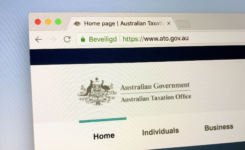Sentencing Hearing in Limbo as Government Assistance Denied to Fraud Offender

The sentencing hearing for the mastermind behind a $100 million in tax fraud scheme is in limbo until the issue of who will pay his estimated $50,000 in legal fees is settled.
Others involved in the Plutus Payroll scheme – including Lauren Cranston, Patrick Wilmott, Jason Onley and Devyn Hammond – have each been sentenced, but the architect of the fraud, 36-year old Adam Cranston, has had his sentencing delayed until commonwealth and state authorities sort out who is to pay his fees.
Assets seized
Despite duping the Australian Taxation Office ATO) or, more accurately, Australian taxpayers out of $105 million over a three-year period while their father was the Deputy Commissioner (Michael Cranston has been cleared of any wrongdoing) – Adam Cranston claims he is unable to pay the costs of legal representation.
Shortly before his arrest in May 2017, court orders directed that Adam Cranston’s existing properties and other assets be seized under proceeds of crime laws, and that any income he makes be dealt with as directed by authorities.
The legislation does not allow for these assets to be used for funding a legal defence without approval, although they can be used to reimburse the Legal Aid Commission for any legal costs incurred pursuant to a grant of legal aid.
Costs incurred to date
Adam Cranston received commonwealth financial assistance for the payment of his legal fees in May 2021. But since then, there has been a mammoth 9-month trial at the end of which he was found guilty of two charges – one of conspiring to defraud the Commonwealth and one of dealing with more than $1 million in proceeds of crime.
Funding for the sentencing hearing
Commonwealth funding will no longer be provided because Cranston has been assessed as not meeting “the purpose of the special circumstance scheme”. A solicitor for the Australian government has told the court that the decision relates to the fact that sentencing proceedings would not fall within “special circumstances” criteria.
Funding is therefore required for the payment of Cranston’s legal fees for a barrister and instructing solicitor to prepare for and attend his sentencing hearing, as well as a mental health report to tender on his behalf. He has estimated that this will cost in the order of $50,000.
It’s been reported that the original commonwealth funding (the scheme is managed by the Attorney General’s Office) was only originally granted because Michaela Cash – the AG at the time – intervened to have the grant approved.
NSW Legal Aid has now been asked to step in and provide him a grant, as it has for the other conspirators. However, it has said it cannot make a decision until June.
Delayed sentencing
As the presiding judge pointed out – the argument over the sum seems ridiculous in light of the fact that it would cost several times more if a switch to state-funded legal assistance required briefing new counsel on the lengthy and complex trial.
Justice delayed
And it’s a disappointing delay in the successful prosecution of one of the biggest fraud cases in Australian history. The matter has now been set down for June.
In the meantime Justice Payne is writing a judgement about the development of funding in the case and directed a transcript of the hearing be sent to representatives of the Commonwealth attorney-general and NSW Legal Aid.
“I think there is a significant public interest in setting out what’s happened and the operation of our criminal justice system in a very serious case.”
If it does not spark any reform, this judgement will at least highlight, and explain for the public record, the seriousness of the defendant being abandoned financially as the trial is about to officially close.
Some may argue that Adam Cranston doesn’t deserve Legal Aid, after all he is guilty of a serious criminal offence and his deceit involved the unscrupulous use of vulnerable people to take on directorships of shelf-companies in exchange for cash payments without really understanding what they were getting into.
Legal Aid should be reserved for those who really do need it, right?
Everyone deserves the right to a fair trial and adequate representation in court. And here’s where Legal Aid plays an important role. In New South Wales, Community Law services are also available and there are 42 centres in New South Wales so that all people can have access to justice.





